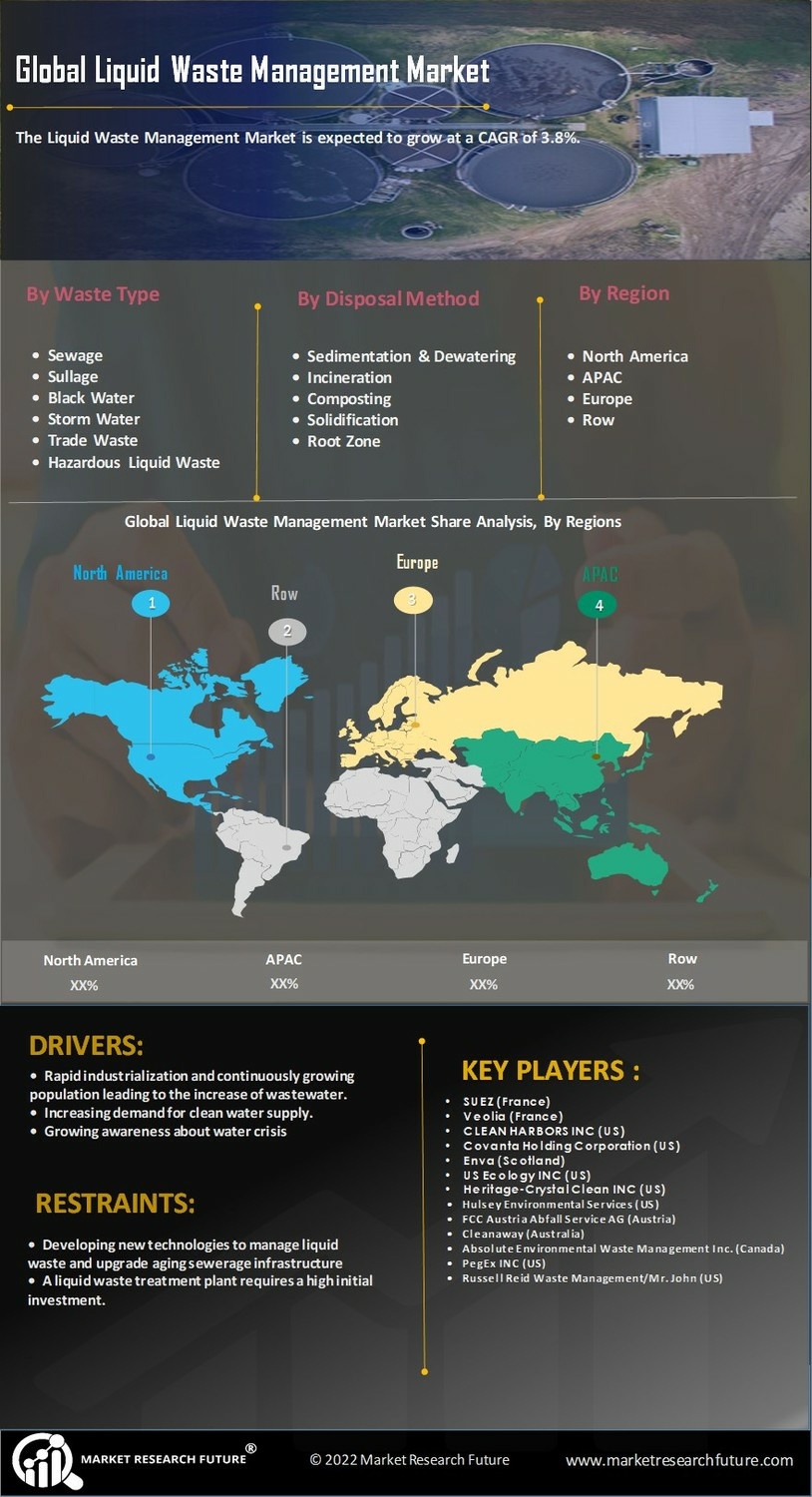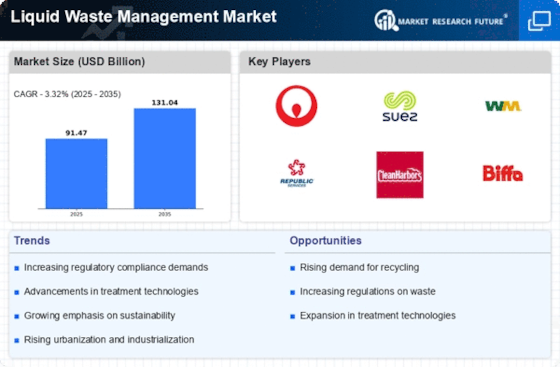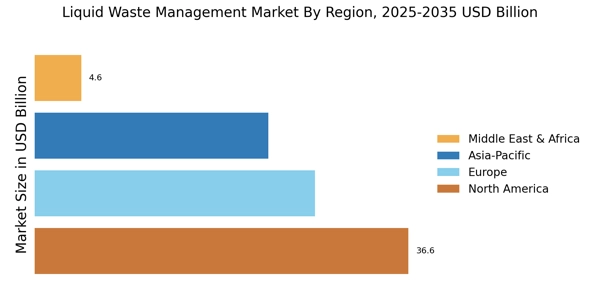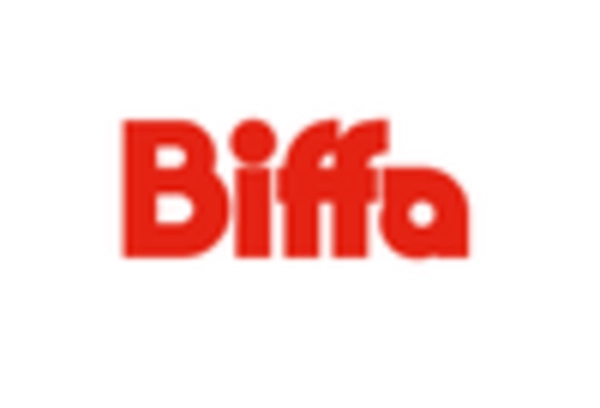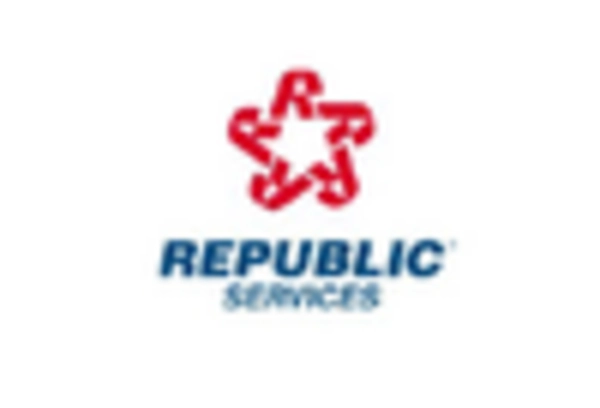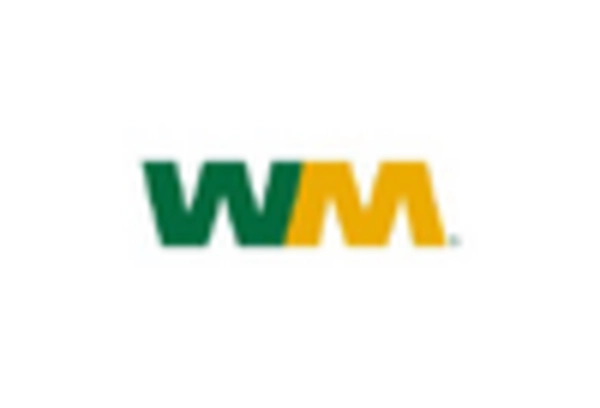Increasing Urbanization
The trend of increasing urbanization appears to be a significant driver for the Liquid Waste Management Market. As populations migrate to urban areas, the demand for efficient waste management systems intensifies. Urban centers often face challenges related to waste disposal, necessitating advanced liquid waste management solutions. According to recent estimates, urban areas are expected to house over 68% of the world's population by 2050, which could lead to a substantial rise in liquid waste generation. This surge in urban population creates a pressing need for innovative technologies and infrastructure to manage liquid waste effectively, thereby propelling the growth of the Liquid Waste Management Market.
Growing Industrialization
Growing industrialization is a key factor influencing the Liquid Waste Management Market. As industries expand, the volume of liquid waste generated increases significantly, necessitating effective management solutions. The manufacturing sector, in particular, is a major contributor to liquid waste generation, with industries such as chemicals, pharmaceuticals, and food processing producing substantial amounts of wastewater. Market analysis indicates that the industrial sector's growth is projected to continue, leading to an increased demand for liquid waste management services. This trend underscores the importance of developing efficient waste treatment technologies and infrastructure to address the challenges posed by industrial liquid waste, thereby driving the Liquid Waste Management Market forward.
Technological Innovations
Technological innovations are playing a pivotal role in shaping the Liquid Waste Management Market. The advent of advanced treatment technologies, such as membrane bioreactors and anaerobic digestion, has revolutionized the way liquid waste is processed. These technologies not only enhance the efficiency of waste treatment but also promote resource recovery, such as biogas and fertilizers. Market data suggests that the adoption of such technologies could lead to a reduction in operational costs and an increase in the overall effectiveness of waste management systems. As industries and municipalities seek to optimize their waste management processes, the demand for innovative solutions is expected to rise, further propelling the Liquid Waste Management Market.
Rising Environmental Concerns
Rising environmental concerns are increasingly influencing the Liquid Waste Management Market. The adverse effects of improper liquid waste disposal on ecosystems and public health have garnered significant attention. Governments and organizations are now prioritizing sustainable waste management practices to mitigate these impacts. Reports indicate that improper liquid waste management contributes to water pollution, affecting millions of people worldwide. As a result, there is a growing emphasis on adopting eco-friendly technologies and practices within the industry. This shift towards sustainability is likely to drive investments in liquid waste management solutions, thereby enhancing the overall market landscape.
Stringent Regulatory Frameworks
Stringent regulatory frameworks are emerging as a crucial driver for the Liquid Waste Management Market. Governments worldwide are implementing stricter regulations to ensure proper waste disposal and treatment practices. These regulations often mandate the adoption of advanced liquid waste management technologies to comply with environmental standards. For instance, the introduction of regulations aimed at reducing industrial effluent discharge has compelled industries to invest in effective waste management solutions. This regulatory pressure is likely to stimulate market growth as companies strive to meet compliance requirements while minimizing their environmental footprint. Consequently, the Liquid Waste Management Market is expected to experience increased demand for compliant waste management solutions.
